Why is it necessary to follow a restricted diet after dental bonding?
Why is it necessary to follow a restricted diet after dental bonding? Dental bonding is a technique that uses dental materials that have been proven safe to fill in gaps caused by cavities or restore damaged, cracked, or chipped teeth.
In addition to the aesthetic purposes, dental bonding also helps protect our oral health from bacterial attacks and restore chewing function.
The dental bonding procedure is very quick and does not affect the soft tissues, which has led many people to believe that there is no need for a restricted diet. However, in order to prevent the bonding from coming off or quickly becoming discolored or stained, knowing what to eat and what to avoid after dental bonding is extremely important.
Therefore, after dental bonding, it is necessary to follow the recommended dietary guidelines provided by the dentist because of the following reasons:
- To protect the bonding from being dislodged or shifting from its original position.
- To better protect oral health from bacterial attacks.
- To prolong the lifespan of the bonding materials.
- To avoid the need for additional bonding procedures, saving costs and time.
- To enhance the aesthetic appearance of the bonding and prevent discoloration.
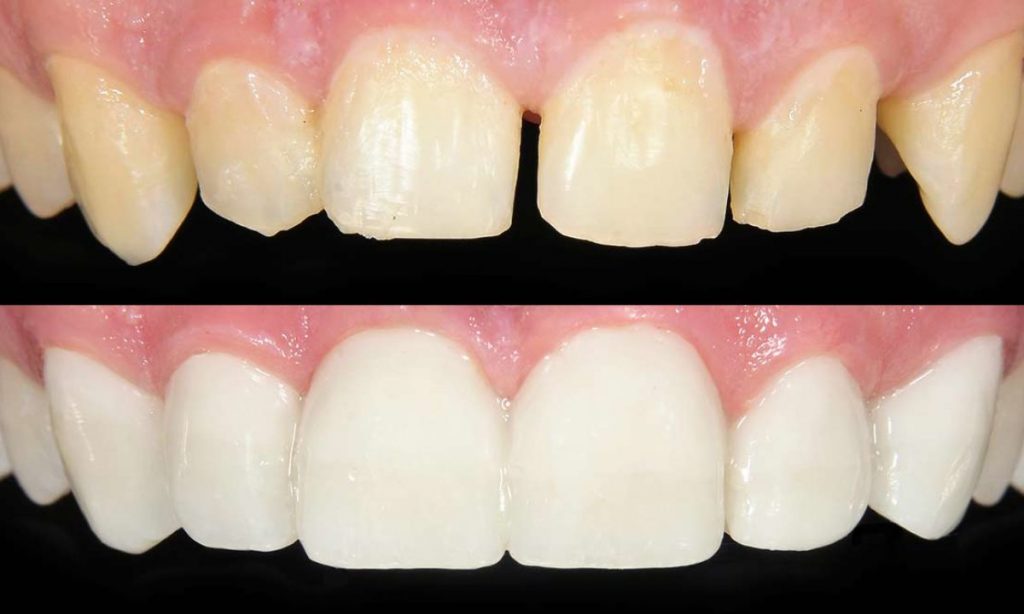
Can I eat immediately after dental bonding or do I have to wait?
The question of whether there are dietary restrictions after dental bonding or if waiting is necessary is a common concern. Some believe that there are no restrictions and as long as they don’t chew on the side where the bonding was done, it’s fine and there’s no need to be cautious.
Others believe that dental bonding requires some time to stabilize, so eating immediately after the procedure is not recommended.
So, can you eat after dental bonding or do you have to wait? According to experts, in the initial period after bonding, the bond between the tooth and the bonding material is still relatively weak. However, with advancements in dental technology, many bonding techniques now result in a very strong bond.
Therefore, whether there are dietary restrictions after dental bonding or if waiting is necessary depends on two factors:
- Bonding material: There are different types of bonding materials available. If you choose newer materials like composite or porcelain, you can eat immediately without any restrictions.
- Bonding technique: If you opt for newer bonding techniques, you can eat immediately after the procedure. However, if traditional bonding techniques are used, it is advisable to wait to avoid dislodging the bonding material.
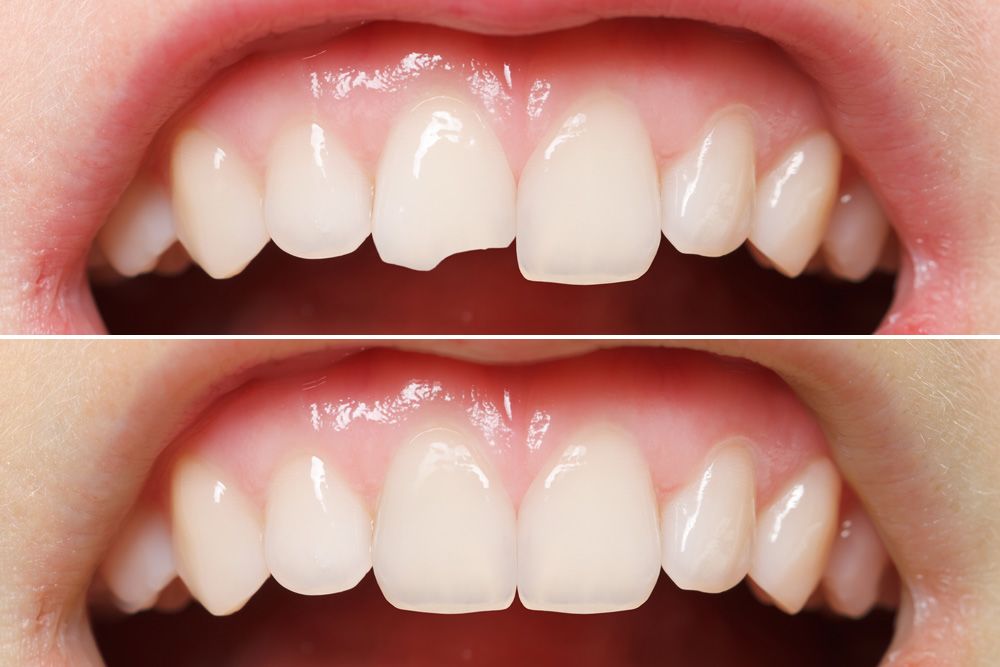
In addition, dental experts also advise that if it is not necessary to eat or drink, it is best to limit it. This will help stabilize the dental bonding and allow it to harden quickly.
How long should you wait before eating after dental bonding?
Although modern techniques and materials allow for fewer dietary restrictions after dental bonding, it is still best to limit immediate consumption. This is because the bonding materials still require a certain amount of time to fully harden.
So how long should you wait to eat after dental bonding? Can you eat after deep dental bonding? The duration before you can eat will vary depending on the bonding material used. Specifically:
Dental bonding with Amalgam material
If dental bonding is done using Amalgam (silver filling), it is recommended to avoid eating for at least 1 day. Amalgam requires a minimum of 24 hours to fully harden.
Currently, Amalgam is not as popular as before. One reason is that silver filling does not provide high aesthetic value. Additionally, there is some information suggesting that the mercury in Amalgam can be harmful to health.
Dental bonding with Composite material
In recent years, composite material has become widely used for dental bonding. Its advantage is that it offers high aesthetic value at an affordable price. Especially, the composite bonding layer can harden immediately after completion with a blue laser light.
However, to ensure absolute safety, dentists still recommend waiting at least 2 hours before eating.
Dental bonding with porcelain inlay/onlay material
The technique of using porcelain inlay/onlay for dental bonding is increasingly popular. This technique uses dental porcelain to fill cavities or repair cracks on teeth, and it is highly regarded for its effectiveness and durability. Additionally, the hardening time is very quick. You can eat immediately after the procedure without any dietary restrictions like other bonding materials.
Is it safe to eat without restrictions after dental bonding with inlay/onlay? It is known that porcelain material bonds strongly to the teeth and is not affected by heat like traditional methods. It is good to avoid eating irritating foods, but if you need to eat, it will not have an impact.
However, the high cost is one of the reasons why porcelain inlay/onlay dental bonding is not widely used.
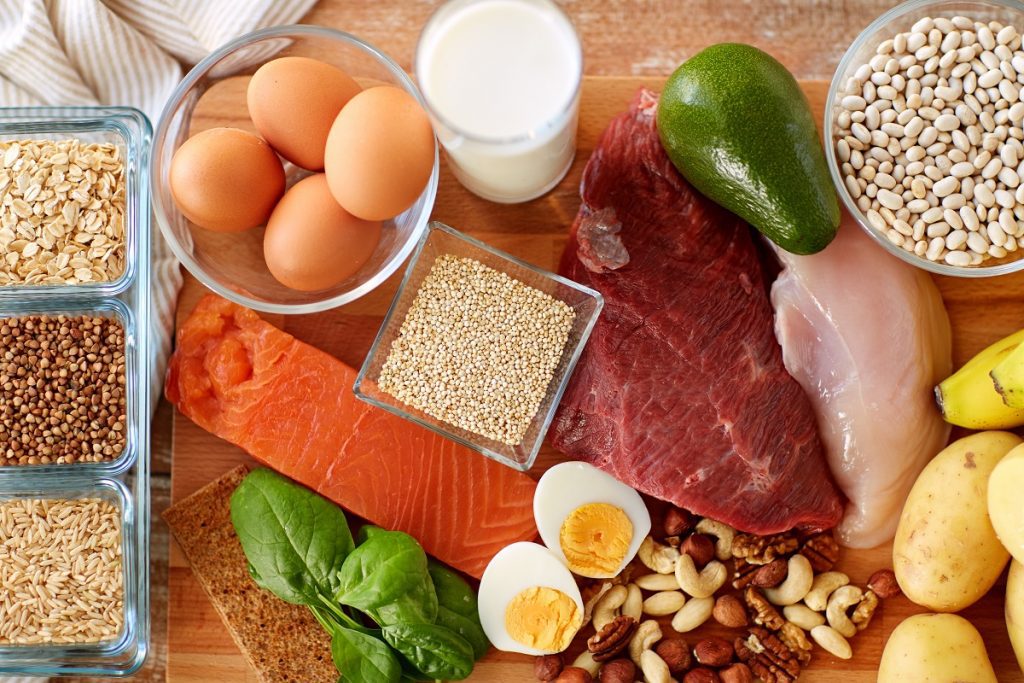
Dietary Recommendations After Dental Bonding from Dental Experts
To ensure the durability of dental bonding, a proper diet after the procedure is crucial. What should you eat after dental bonding? Are there any dietary restrictions after dental bonding? Here are some important considerations for your post-bonding nutrition:
What to avoid after dental bonding?
Avoiding certain foods and beverages not only helps prevent the bonding from coming loose but also reduces sensitivity and discomfort. To protect the bonding, include the following foods in your daily diet:
What to eat after dental bonding to maintain a strong bond?
After dental bonding, it is important to eat foods that minimize sensitivity and mild discomfort. These symptoms are normal and will subside in a few days.
However, if you eat foods that are too hard or dry, the sensitivity and discomfort may worsen. Therefore, during the first few days after dental bonding, prioritize soft and liquid foods such as porridge, soup, meatballs, steamed fish, and boiled vegetables.
In particular, if you have sensitive teeth and experience discomfort while chewing, switch to consuming nutritious soups or porridges. These foods help reduce the pressure on the jaw. You can consume them continuously for 2-5 days until the discomfort subsides.
Note: When preparing soup or porridge, ensure a balanced intake of nutrients. Focus on supplementing protein, vitamins, and fiber. Additionally, limit the use of spicy seasonings such as onions, pepper, and chili, as they can irritate the gums and worsen the discomfort.
Adding milk and yogurt improves oral health
Milk and yogurt are beneficial for overall health. They are rich in protein and minerals, providing essential nutrients to the body. If you experience discomfort and are reluctant to eat tough meats, milk is a great source of energy.
Not only are they delicious and nutritious, but milk and yogurt also provide a significant amount of vitamin D and calcium. Both of these components are beneficial for the healthy development of bones and teeth. Therefore, adding milk and yogurt to your daily diet helps enhance the bond between the dental bonding material and the natural tooth.
In particular, yogurt also acts as a natural plaque remover. Therefore, you can limit excessive brushing in the area where the bonding was done. Additionally, the nutrients in yogurt help stabilize the bonding quickly, reducing the risk of looseness or detachment.
Increasing calcium and fluoride-rich foods after dental bonding
Both calcium and fluoride are beneficial minerals for oral health, especially tooth enamel. Although dental bonding does not require tooth structure removal, the additional material on the tooth may cause dental issues such as tooth sensitivity.
Therefore, supplementing calcium and fluoride in your daily diet helps improve the strength of tooth enamel.
Furthermore, when fluoride combines with hydroxyapatite in tooth enamel, it forms Fluorapatite, which has a strong structure. Moreover, Fluorapatite is less soluble in food and beverages, providing more comprehensive oral protection, especially after dental bonding.
Some high-calcium and fluoride-rich foods include mushrooms, tomatoes, sweet potatoes, seaweed, potatoes, and oysters. Additionally, beverages such as milk and green tea also contain a considerable amount of fluoride.
Adding fiber-rich foods after dental bonding
Experts also suggest that fiber-rich foods are beneficial for individuals who have just undergone dental bonding. Most fiber-rich foods are soft and easy to chew and swallow. Moreover, fiber helps clean plaque and neutralize acid produced by bacteria in the mouth, preventing oral diseases.
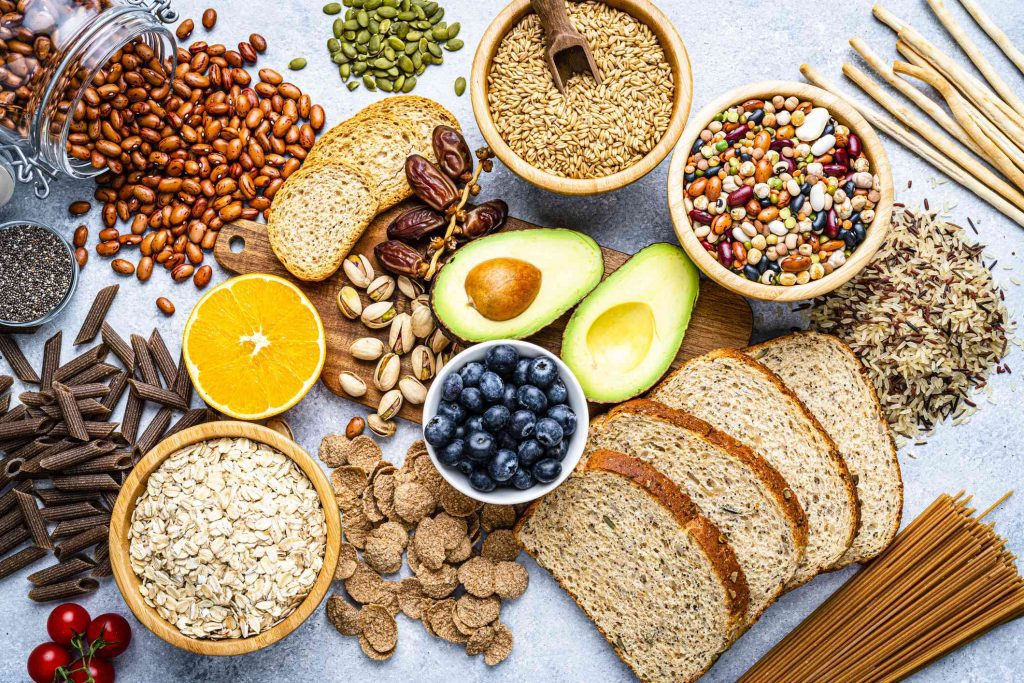
What should you avoid to prevent the bonding from coming loose after dental bonding?
Yes, there are certain food groups that should be avoided after dental bonding as they have the potential to cause irritation, prolonged sensitivity, or compromise the bonding. So, what foods should you avoid after dental bonding? Here is a list of foods that you should avoid:
Hard, dry, and tough-to-chew foods should be avoided after dental bonding
Foods that are tough, dry, and hard should be avoided after dental bonding. For example, dried squid, tough beef, beef jerky, dried fish, etc., as they can cause tooth sensitivity and discomfort after just being bonded. Additionally, chewing these foods can put excessive pressure on the bonding, causing it to crack, loosen, or break.
Note: Although the bonding material has hardened after being cured with a laser, it is still advisable to avoid these types of foods in the first few days. In case the bonding comes loose or breaks due to accidentally eating hard foods, it is recommended to visit a reputable dental clinic for repair or replacement.
Avoid foods and beverages that are too hot or too cold after dental bonding
After dental bonding, you may experience tooth sensitivity. Therefore, it is advisable to avoid consuming foods and drinks that are too hot or too cold. Can you drink ice water after dental bonding? Experts advise against it. Excessive heat or cold can stimulate and cause prolonged tooth sensitivity and discomfort.
Furthermore, consuming foods and drinks that are too hot or too cold can also compromise the longevity of the bonding. This is especially true for bonding materials made from silicate cement.
What foods should you avoid after dental bonding – Beverages and foods with high acid content
Acidic foods and beverages can erode tooth enamel. Acid can dissolve the hard tissues of tooth enamel and cause erosion in the chewing surfaces and the necks of the teeth. Unlike other tissues in the body, tooth enamel cannot repair or regenerate itself.
To prevent natural tooth enamel erosion and maintain the longevity of the bonding, it is advisable to avoid consuming foods and drinks that contain acid, such as carbonated beverages, spicy foods, fast food, fried food, mint, coffee, etc.
What foods should you avoid after dental bonding – Avoid consuming dark-colored beverages after dental bonding
In addition to the above-mentioned food groups, dark-colored beverages should also be avoided after dental bonding. For example, coffee, soda, alcohol, etc., can stain the teeth, dull the bonding, and reduce its longevity.
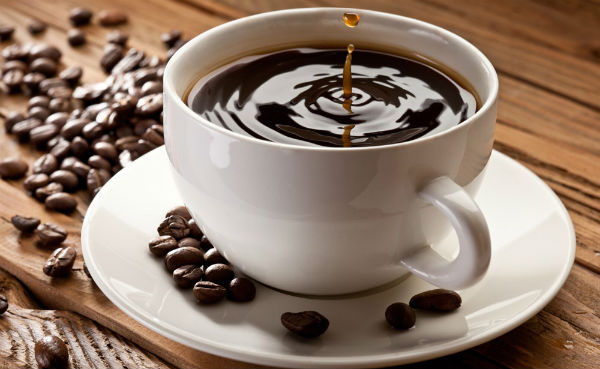
Some important notes to remember when eating and drinking after dental bonding:
- Bite and chew food carefully: the newly bonded area is not completely stable yet, so you need to bite and chew food carefully. Bite gently and chew slowly to prevent the bonding from cracking or coming loose. Additionally, you can chew on the opposite side of the mouth where the bonding is not present.
- Eat slower: eating slowly will reduce the risk of strong biting force on the bonding, which can lead to it coming loose.
- Rinse your mouth with water if your teeth are sensitive to hot or cold: this helps reduce the risk of tooth sensitivity and discomfort caused by air entering the mouth.
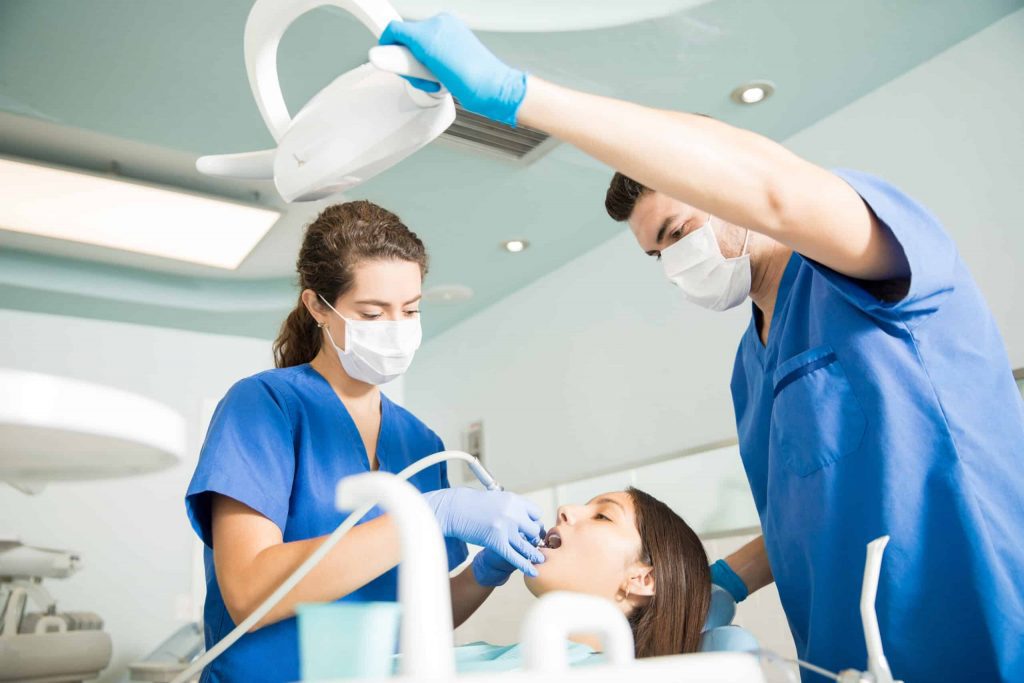
Conclusion
In summary, being aware of what to eat after dental bonding is essential for preserving the effectiveness of this renowned dentistry method in Vietnam. By adhering to the recommended dietary guidelines and avoiding specific foods, you can safeguard the longevity and success of your dental bonding.
It is advisable to seek personalized advice from dental professionals specializing in this dentistry method in Vietnam, as they can provide tailored recommendations and address any concerns you may have about your post-procedure diet and oral care routine. Entrust your smile to the expertise of dental practitioners in Vietnam, ensuring the continued beauty and strength of your teeth through dental bonding.
The article has provided you with all the information about what to eat after dental bonding and what foods should you avoid after dental bonding . If you have any other questions, please contact BeDental in Vietnam for direct advice from their team of experts.
| Danh mục | Unit | Giá thành | |
|---|---|---|---|
| 1.Teeth filling (More detail...) | |||
| Baby teeth filling | 1 Unit | 250.000 ~ 10$ |
|
| Permanent Teeth Filling | 1 Unit | 500.000 ~ 20$ |
|
Cosmetic Filling | 1 Unit | 700.000 ~ 28$ |
|
Sensitive teeth filling | 1 Unit | 500.000 ~ 20$ |
|
| Composite bonding | 1 Unit | 1.000.000 ~ 40$ |
|
| 2.Root Canal Treatment - Anterior by endodontist machine (More detail...) | |||
| Root Canal Treatment - Anterior for baby teeth | 1 Unit | 1.200.000 ~ 46$ |
|
| Root Canal Treatment - Anterior for Front teeth | 1 Unit | 1.800.000 ~ 60$ |
|
| Root Canal Treatment - Anterior for Premolar teeth | 1 Unit | 2.500.000 ~ 95$ |
|
| Root Canal Treatment - Anterior for molar teeth | 1 Unit | 2.500.000 ~ 95$ |
|
| 3.Root Canal reTreatment - Anterior by endodontist machine | |||
| Root Canal Treatment - Anterior for Front teeth by endodontist machine | 1 Unit | 2.000.000 ~ 70$ |
|
| Anterior for Premolar teeth by endodontist machine | 1 Unit | 2.500.000 ~ 95$ |
|
| Anterior for molar teeth by endodontist machine | 1 Unit | 3.000.000 ~ 110$ |
|
| 4 Vecniflour dental care (More detail...) | |||
| Vecniflour dental care for child | 1 Unit | 500.000 ~ 20$ |
Please leave your information if you would like further consultation from the dental clinic
Tư vấn chuyên môn bài viết:
BÁC SĨ VÕ HUY VI
BEDENTAL - TOP STANDARD DENTISTRY SYSTEM
In HANOI
Address 1: 7B Thi Sach St, Ngo Thi Nham, Hai Ba Trung Dist, Ha Noi. - 0934.61.9090
Address 2: No 129 Hoang Ngan, Yen Hoa, Cau Giay Dist, Ha Noi. - 0934.61.9090
In HO CHI MINH
Address 1: 53 -55 -57 Pho Duc Chinh St, Nguyen Thai Binh, Dist. 1, Ho Chi Minh. - 0766.00.8080
Working: 9am - 8pm everyday
Website: https://bedental.vn/en/





